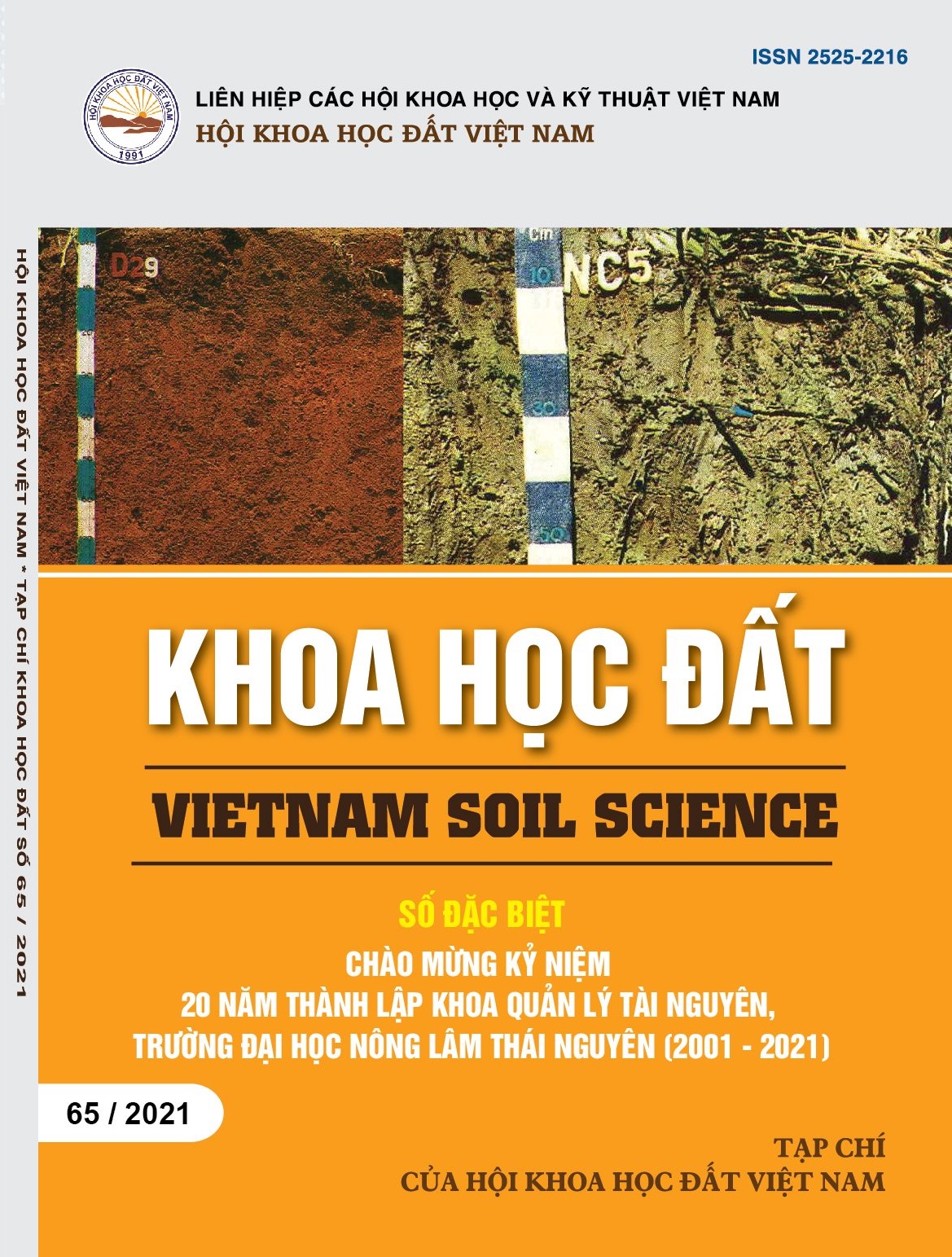NGHIÊN CỨU SỬ DỤNG CHẾ PHẨM VI SINH XỬ LÝ PHẾ PHỤ PHẨM NÔNG NGHIỆP THÀNH PHÂN BÓN HỮU CƠ
Nguyễn Xuân Hòa1,2*, Phan Quốc Hưng1,2, Nguyễn Thị Ngọc Dinh3, Đinh Hồng Duyên1,2
[1]Trung tâm Kỹ thuật tài nguyên đất và môi trường, Học viện Nông nghiệp Việt Nam2Khoa Tài nguyên và Môi trường, Học viện Nông nghiệp Việt Nam
3Khoa Nông học, Học viện Nông nghiệp Việt Nam
*E-mail: nxhoa@vnua.edu.vn
TÓM TẮT
Những năm vừa qua với việc áp dụng các giống mới, quy trình canh tác mới đã góp phần nâng cao năng suất cây trồng, cùng với đó lượng phát thải tàn dư phế phụ phẩm ngày càng tăng. Tất cả các nguồn phế thải sau khi thu hoạch một phần phơi để đốt, phần còn lại thải bỏ ra môi trường gây ô nhiễm tới môi trường đất và môi trường nước trong khi đó hàm lượng chất dinh dưỡng có trong đất bị thiếu nghiêm trọng dẫn đến bạc màu và bị thoái hóa nghiêm trọng. Một trong những biện pháp hữu hiệu để sản xuất nông nghiệp bền vững và bảo vệ môi trường là ứng dụng chế phẩm vi sinh (CPVS) xử lý phế phụ phẩm nông nghiệp thành phân bón hữu cơ. Nghiên cứu này thực hiện nhằm đánh giá, lựa chọn công thức tối ưu để phục vụ mô hình ứng dụng chế phẩm vi sinh xử lý phế phụ phẩm nông nghiệp quy mô lớn trên địa bàn tỉnh Phú Thọ. Công thức 4 với tỷ lệ sử dụng CPVS 2% được chọn để xây dựng mô hình ứng dụng chế phẩm vi sinh xử lý phế phụ phẩm nông nghiệp quy mô lớn.
Từ khoá: chế phẩm vi sinh, xử lý phụ phẩm nông nghiệp, phân bón hữu cơ.
SUMMARY
Research on the using of microbial product for processing agricultural waste into organic fertilizers
Nguyen Xuan Hoa¹,²*, Phan Quoc Hung¹,², Nguyen Thi Ngoc Dinh³, Dinh Hong Duyen¹,²
1Centrer for Land Resources and Environmental Technology, Vietnam National University of Agriculture
2Faculty of Natural Resources and Environment, Vietnam National University of Agriculture
3Faculty of Agronomy, Vietnam National University of Agriculture
In recent years, the adoption of new crop varieties and cultivation practices has significantly improved crop productivity. However, this has also led to an increase in the generation of agricultural waste and by-products. After harvesting, a portion of this waste is sun-dried and burned, while the remainder is discarded into the environment, causing soil and water pollution. At the same time, the nutrient content in the soil is severely depleted, leading to soil degradation and infertility. One of the effective measures for sustainable agricultural production and environmental protection is the application of microbial products to process agricultural waste into organic fertilizers. This study aims to evaluate and select the optimal formula 4 with the use of 2% microbial product, was chosen for developing the large-scale application model of microbial product to treat agricultural waste in Phu Tho province.
Keywords: microbial products, processing agricultural waste, organic fertilizers
Ngày nhận bài: 15/11/2024
Ngày thông qua phản biện: 31/12/2024
Ngày duyệt đăng: 29/5/2025
 Tạp chí
Tạp chí




